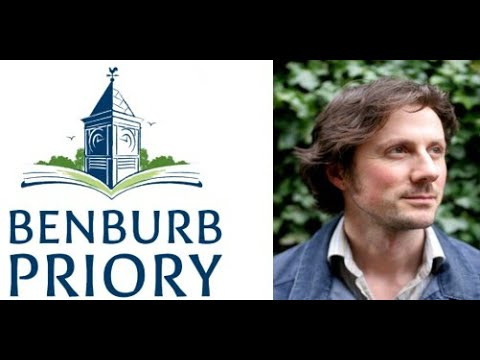Some of my readers here have asked if the talk I gave last week, on Christianity in the age of the Machine, was filmed. The answer is yes: here it is, complete with a photo of me looking much younger than I actually am.
Unfortunately the very beginning of the talk didn’t make it onto the film. I began by explaining that I’m a very new Christian, and that everything I said should be heard in that light. I am very happy to stand corrected on any of my amateur theological musings.
I then recited W. B Yeats’ poem The Second Coming - apposite for today, though a hundred years old. You can read it in full below. It was the introduction to what I then talked about: the apocalypse we’re living through, from a Christian perspective.
As it happens, another film has just been released today on the same subject: a conversation I recently recorded with the Canadian symbologist and thinker Jonathan Pageau about control and the Machine age. You can watch that here.
The Second Coming
Turning and turning in the widening gyre
The falcon cannot hear the falconer;
Things fall apart; the centre cannot hold;
Mere anarchy is loosed upon the world,
The blood-dimmed tide is loosed, and everywhere
The ceremony of innocence is drowned;
The best lack all conviction, while the worst
Are full of passionate intensity.
Surely some revelation is at hand;
Surely the Second Coming is at hand.
The Second Coming! Hardly are those words out
When a vast image out of Spiritus Mundi
Troubles my sight: somewhere in sands of the desert
A shape with lion body and the head of a man,
A gaze blank and pitiless as the sun,
Is moving its slow thighs, while all about it
Reel shadows of the indignant desert birds.
The darkness drops again; but now I know
That twenty centuries of stony sleep
Were vexed to nightmare by a rocking cradle,
And what rough beast, its hour come round at last,
Slouches towards Bethlehem to be born?





Mssr. Pageau mentions Matthew 10:16 “I am sending you out like sheep among wolves. Therefore be as shrewd as snakes and as innocent as doves."
I recently saw a documentary called Canada's Arctic Wolves: The Ghosts of the Arctic. It is absolutely brutal. It is literally dog eat dog. The competition between packs is ruthless. Survival is tenuous in winter and in summer. And we are sent out into this like sheep! Yikes. Let's not kid ourselves. The Way of Nature is not all moonbeams and chickadees. It's also like this:
https://www.youtube.com/watch?v=s0QFE-hxgI8&ab_channel=RealWild
What does it mean to be shrewd as a serpent? I am no ophiologist (I had to look that up) but snakes tend to hide in out of the way places. In tall grass, for example. Yet we are also to be as harmless/innocent as doves. Which probably means we don't get to use our hiding places to strike out against those who would harm us, i.e the wolves
I love the discussion that goes on at this substack. I think it is an important one. Yet, as Paul once put it we are up against a monster that grows in deserts (the desert of the real). The choice draws closer to find the real desert and live there or not. A time to find our caves and hermitages and monasteries in the mountains, forests and deserts. Where we might be able to live true lives according to the Way. If we do, maybe someday a new generation of Desert Fathers and Mothers will arise. That would be worth it.
Again I think of my favorite Robinson Jeffers poem that struck me as essential 30 years ago:
The Soul's Desert -- Robinson Jeffers
August 30, 1939
They are warming up the old horrors; and all that they say is echoes of echoes.
Beware of taking sides; only watch.
These are not criminals, nor hucksters and little journalists, but the governments
Of the great nations; men favorably
Representative of massed humanity. Observe them. Wrath and laughter
Are quite irrelevant. Clearly it is time
To become disillusioned, each person to enter his own soul's desert
And look for God--having seen man.
Paul, I can’t recall if you have quoted from T.S. Eliot’s Four Quartets in your essays, but I thought I’d mention this bit from The Dry Salvages (part I) which I recently came across while going through the poem. It includes some vivid references to nature and the machine:
I do not know much about gods; but I think that the river
Is a strong brown god--sullen, untamed and intractable,
Patient to some degree, at first recognised as a frontier;
Useful, untrustworthy, as a conveyor of commerce;
Then only a problem confronting the builder of bridges.
The problem once solved, the brown god is almost forgotten
By the dwellers in cities—ever, however, implacable.
Keeping his seasons and rages, destroyer, reminder
Of what men choose to forget. Unhonoured, unpropitiated
By worshippers of the machine, but waiting, watching and waiting…